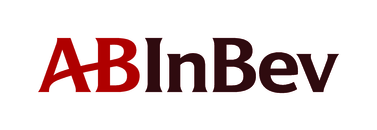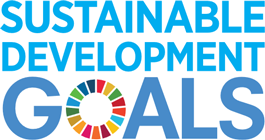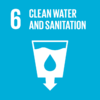How can we accelerate progress on Goal #6 Clean Water and Sanitation?
Summary of Discussion
Q7) How can we accelerate action, mobilize consumers, governments and businesses, and scale up solutions in ways not done before?
-Consumer focused campaigns to help raise awareness
-Measure water usage and monitor the resource, create a framework for water measurement
-Partnerships and collaboration between different actors
-Revalue the price of water
-Engage stakeholders to join together in promoting green and sustainable economic zones
-Daily water reports
-Education
-Create simplified, unified frameworks to understand how communities are performing on water usage
-Build appreciation for water through a global day without water
-Reach across sectors, engage all actors in water conferences, ensure dialogue includes various voices
Q6) How can we as a society build more appreciation for water to encourage less wasteful behaviours?
-Education, water conservation curriculum, help consumers understand where their water comes from
-Water footprint initiatives, water usage benchmarking by utilities
-Water valuation framework to price water appropriately
-Market-based approaches including financial benefits for reducing water usage
-Government policies and regulations around water usage for private sector
Q5b) How can different actors help to facilitate the transfer of enabling knowledge and technology around water management and access between regions?
-Establish strong communication channels, stakeholder participation groups, UN water discussions
-Build clear frameworks and predictable, accessible protocol
-Build on what works and scale, rather than continually innovating
-Enabling policy development from governments
-Collaboration/sharing between different ministries and service providers
Q5a) What kind of opportunities should be fostered in order to encourage collaboration and partnerships between different actors?
-Policies and effective governance to drive private sector participation
-Build trust across actors
-Build capacity of local, regional, and global actors
-Create internal systems to encourage partnerships, create long-term overarching goals rather than short-term goals
Q5) What is the core role each actor should be championing and focusing on in order to drive progress on SDG #6?
-Governments can lead on policy regulation and enforcing regulations, can reform to capture full value of water and manage watershed systems, public finance
-Corporations/private sector can advocate for enabling policies and address internal water management, demonstrate leadership as stewards, drive innovation
-Utilities can build capacity to manage change and reduce water losses, deliver reliable services affordably
-NGOs can support collective actions, catalyze approaches and drive collaboration
-Integrated efforts and collaboration between all sectors
-Each actor should improve their own performance, collaborate with others and craft collective action
Q4) What kind of investment or funding structures could be effective for driving more action and collaboration on water security and water access?
-Blended finance, diversifying sources and matching terms and conditions of different finance sources
-Increasing the cost of water to reflect true value, thinking of water less tangibly
-Develop common lexicon for different stakeholders/investors
-Collaborative platforms that will build trust between different actors
-PPP models
-Pay as you use mechanisms
-Water projects certified as green bonds
Q3a) Is there a way to ensure that public policy and decision making is inclusive and representative of multi-stakeholder interests rather than economic interests?
-Ensuring everyone has a voice at the table, particularly those in poverty when it comes to infrastructure and planning
-Shared vision of water allocation, long-term thinking
-Address power dynamics at play
-Develop business case/ROI to align economic interests
-Stakeholder mapping
-Invest in collaborative efforts and the time and effort to build trust and bring diverse stakeholder together
Q3) How does the issue of governance connect to the successful scaling of water management and watershed security?
-Connecting water users with water managers and stewards requires strong governance
-Balancing competing needs, ensuring the needs of the people and the environment are prioritized (rather than extractive private interests)
-Overcoming transaction costs to align values and incentives among stakeholders
-Enabling regulations/policies to support water reuse and recycling
-Good governance needs to be accountable, transparent, legitimate, efficient and inclusive, ot hierarchical
-Financing, proof of concept for investors, enabling them to price risk and social return, attracting investment
-Engaging/inspiring action from other stakeholders
Q2a) How can we facilitate bridging the gap between water access and water security, rather than addressing each in isolation?
-Governance and collaboration
-Systems thinking, long-term thinking with circular economy in mind
-Enhance government spending ability through financial tools
-Institute technological and financial solutions, demand-side efficiency measures and augmentation
-Expanding access to necessary water supply and sanitation services
-Organized local initiatives through local actors and governments
-Foundation of water conservation and addressing net revenue water
Q2) What are some of the barriers to implementing successful initiatives on a large scale when it comes to watershed improvement, water management and water security?
-Limited data
-Lack of financing and investments (needed for infrastructure), need for blended finance approach
-Disconnected initiatives, misalignment between various approaches and stakeholders, need for coordination between stakeholders and initiatives
-Short-termism and focus on economic returns
-Lagging technological innovations
Q1b) Agriculture is responsible for 70% of freshwater usage. What are some ideas around improving efficiency in this space?
-Public-private partnerships
-Combining multiple solutions
-Enabling policy environment
-Increase the price of freshwater, water usage is often under-priced in ag industry
-Improved farming techniques
-Developing relevant practices for different regions and economies
-Increasing productivity and efficiency of land use
-Working with dedicated/expert institutions, and multi-party collaboration
-Dedicated financing for small holder farmers
-Farmer-driven approach, social transformation around this
Q1a) What are some of the key learnings from these initiatives that we should note for future attempts to address water issues at large?
-Build on current successes, don't reinvent the wheel
-Find local champions (both public and private sector)
-Collaboration and partnership is key
-Flexibility and willingness to pivot
Q1. What are some examples of successful initiatives or campaigns you have seen recently? What made them successful?
-BIER's collective commitment to water stewardship and security
-CEO Water Mandate building business case for stewardship, advancing progress on tough isues
-2030 Water Resources Group, solve water challenges through transparency and collaboration
-TNC's financing, water funds
-Water.org's partnerships with microfinance
-Multi-stakeholder partnership with private sector
-Political leadership, business commitment, and community engagement
-Waste water recycling
-Sustained, coordinated, long-term efforts
-WASH campaign
Meet our Guest Contributors
Water & Sanitation for …
The Nature Conservancy
AB InBev
2030 Water Resources Group …
The Beverage Industry Envir…
President, Pacific Institute
WWF
Water.org
Session Moderator
Canada




Posts
Back to Top